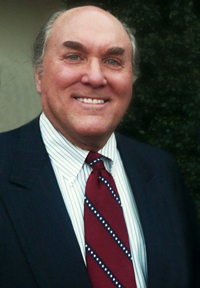The Angelicum Academy brings the study of the Great Books into the 21st century
The Liberal Arts Go Online | A Catholic World Report interview with Patrick S.J. Carmack, president of the Angelicum Academy
Patrick S.J. Carmack is president of the Angelicum Academy, a Catholic homeschool program based on the liberal arts and the “Great Books” of Western civilization. A former administration law judge and member of the US Supreme Court Bar, Carmack has also served as CEO of a petroleum exploration and production company and as the founder and president of several non-profit organizations.

A prominent advocate of liberal education, Carmack has also pioneered the use of modern technology in the study of the Great Books, moderating the first live-audio, online Socratic discussion groups in 2000 and leading many similar online groups since. He is the recipient of the 2009 International Etienne Society’s Pope John Paul the Great Thomist Humanist Award for his work, and he recently spoke to CWR about the Angelicum Academy and his most recent educational endeavors.
CWR: What is the Angelicum Academy and why was it founded?
Patrick Carmack: I met with Dr. Mortimer Adler, the former editor of Encyclopaedia Britannica and of the Great Books of the Western World and author of 50 books on philosophy, in 1999 in Wye, Maryland and again in 2000 in San Mateo, California. Dr. Adler had long decried the waste of time in the American compulsory education system and its collapse into relativism and other philosophical problems.
My interest in meeting Dr. Adler was in seeking his advice on what a complete homeschool curriculum should look like. Over time, as homeschooling grew and mainstreamed—especially after the Columbine high school massacre in 1999, which moved hundreds of thousands of families into homeschooling—more and more homeschooling parents were looking for rigorous academic curricula.
Dr. Adler headed the Great Books movement for 80 years, from 1920 at Columbia to 2000. He saw that return to the classics as a critical part of the answer to progressive education and relativism. Beside the reading of the great classics, he believed the discussion of them in a Socratic, or conversational, manner was essential to gaining a solid understanding of their contents as well as to developing the ability think critically and speak effectively along with the other participants in the conversation. He called the study of the Great Books the “backbone of a liberal education” (“liberal” here meaning a “generalist” education as opposed to a narrow vocational or professional training).
Dr. Alder believed the American educational system was four years too long and resulted in an unnecessarily protracted adolescence. It is interesting to note that famed Catholic philosopher Jacques Maritain shared Dr. Adler’s views regarding the value of the Great Books and on shortening the time spent on just learning the liberal arts. Once the learning arts are mastered they should be used on something—that “something” is first the Great Books, specialization and vocationalism coming later.
Carl E. Olson's Blog
- Carl E. Olson's profile
- 20 followers




